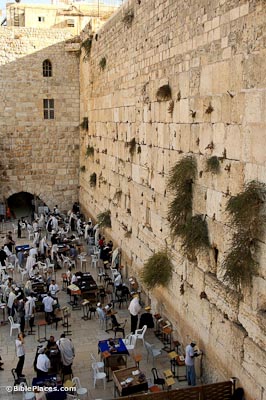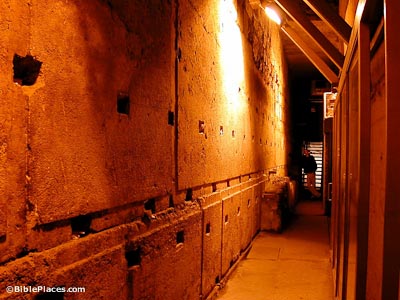
Bible Verse and Prayer for Today;
But and if ye suffer for righteousness’ sake, happy are ye: and be not afraid of their terror, neither be troubled.
1 Peter 3:14
Prayer
Lord . Please help us understand that if we suffer for Righteousness sake . That we do not need to be afraid of anything , and don’t need to worry about anything , for You are in Control , Thank You Lord that we can have Total Faith in YOU and have ZERO fear. This we Pray in the name of Jesus , amen and amen
Prayer Tips
Prayers in the Old Testament
- David’s prayer of thanksgiving
2Sa 7:18 Then went king David in, and sat before the LORD, and he said, Who am I, O Lord GOD? And what is my house that thou hast brought me hitherto?
19 And this was yet a small thing in thy sight, O Lord GOD; but thou hast spoken also of thy servant’s house for a great while to come. And is this the manner of man, O Lord GOD?
20 And what can David say more unto thee? For thou, Lord GOD, knowest thy servant.
21 for thy word’s sake, and according to thine own heart, hast thou done all these great things, to make thy servant know them.
22 Wherefore thou art great, O LORD God: for there is none like thee, neither is there any God beside thee, according to all that we have heard with our ears.
23 And what one nation in the earth is like thy people, even like Israel, whom God went to redeem for a people to himself, and to make him a name, and to do for you great things and terrible, for thy land, before thy people, which thou redeemedst to thee from Egypt, from the nations and their gods?
24 for thou hast confirmed to thyself thy people Israel to be a people unto thee for ever: and thou, LORD, art become their God.
25 And now, O LORD God, the word that thou hast spoken concerning thy servant, and concerning his house, establish it for ever, and do as thou hast said.
26 And let thy name be magnified for ever, saying, The LORD of hosts is the God over Israel: and let the house of thy servant David be established before thee.
27 For thou, O LORD of hosts, God of Israel, hast revealed to thy servant, saying, I will build thee an house: therefore hath thy servant found in his heart to pray this prayer unto thee. - Come to God in prayer as you feel comfortable, sitting, standing, kneeling even laying down,
- Praise God for listening to this prayer.
- Thanking Him for taking care of you in the past.
- Thank God for the promises in His Word (The Bible) that He gives to everybody freely.
- Confirm that God knows you and your body better than anybody else.
- You have been receiving according to God’s will in the past, and you will be receiving according to His will in the future.
- Praise and worship God for His goodness and grace.
- Thank God for the miracle still to happen in your life.
- Confirm that God is the great Protector.
- Thank God for your family and friends.
- Confirm that without God you are lost.
- Thank God for Heaven and Eternal Life.
- Confirm that the Word of God is the only Truth.
- Ask for His blessings.
- Ask God to extend your property.
- Thank God for His blessings to you.
Bybel Vers en Gebed vir Vandag
Maar as julle ly ter wille van die geregtigheid, is julle gelukkig; en moenie bang wees vir hulle verskrikking nie en moenie ontsteld wees nie.
1 Petrus 3:14
Gebed
Here. Help ons asseblief om te verstaan dat as ons ly ter wille van die geregtigheid, dat ons vir niks hoef te vrees nie en oor niks hoef bekommerd te wees nie, want U is in Beheer. Dankie Here dat ons volkome geloof in U kan hê en GEEN vrees kan hê nie. Dit bid ons in die Naam van Jesus, amen en amen.
Gebed Wenke
Gebede in die Ou Testament
Dawid se dankgebed
2Sam 7:18 Toe gaan koning Dawid in en gaan sit voor die HERE en sê: Wie is ek, Here HERE? En wat is my huis dat U my tot hiertoe gebring het?
19 En dit was nog gering in u oë, Here HERE, maar U het ook van die huis van u dienaar tot in die verre toekoms gespreek. En is dit die gewoonte van die mens, Here HERE?
20 En wat kan Dawid nog meer vir U sê? Want U, Here HERE, ken u dienaar.
21 Ter wille van u woord en volgens u eie hart het U al hierdie groot dinge gedoen om u dienaar dit bekend te maak.
22 Daarom is U groot, Here God, want daar is niemand soos U nie, en daar is geen God behalwe U nie, volgens alles wat ons met ons ore gehoor het.
23 En watter enige nasie op die aarde is soos u volk, soos Israel, wat God as ‘n volk vir Homself gaan verlos het en om vir Hom ‘n naam te maak en om groot en vreeslike dinge vir julle te doen vir u land voor u volk wat U vir U uit Egipte verlos het, van die nasies en hulle gode?
24 want U het u volk Israel vir Uself bevestig om vir ewig ‘n volk vir U te wees, en U, HERE, het hulle God geword.
25 En nou, HERE God, die woord wat U oor u dienaar en oor sy huis gespreek het, bevestig dit tot in ewigheid en doen soos U gespreek het.
26 En laat u Naam tot in ewigheid grootgemaak word deur te sê: Die HERE van die leërskare is God oor Israel; en laat die huis van u dienaar Dawid voor u aangesig bestendig wees.
27 Want U, HERE van die leërskare, God van Israel, het dit aan u dienaar geopenbaar en gesê: Ek sal vir u ‘n huis bou; daarom het u dienaar dit in sy hart gevind om hierdie gebed tot U te bid.
Kom na God in gebed terwyl jy gemaklik voel, sittend, staand, knielend, selfs lêend.
Prys God dat Hy na hierdie gebed luister.
Dankie Hom dat Hy in die verlede vir jou gesorg het.
Dankie God vir die beloftes in Sy Woord (Die Bybel) wat Hy vrylik aan almal gee.
Bevestig dat God jou en jou liggaam beter ken as enigiemand anders.
Jy het in die verlede volgens God se wil ontvang, en jy sal in die toekoms volgens Sy wil ontvang.
Prys en aanbid God vir Sy goedheid en genade.
Dankie God vir die wonderwerk wat nog in jou lewe moet gebeur.
Bevestig dat God die groot Beskermer is.
Dankie God vir jou familie en vriende.
Bevestig dat jy sonder God verlore is.
Dankie God vir die Hemel en die Ewige Lewe.
Bevestig dat die Woord van God die enigste Waarheid is.
Vra vir Sy seëninge.
Vra God om jou eiendom uit te brei.
Dankie God vir Sy seëninge aan jou.

Bible Teaching of the Day
There is only one reason for divorce explicitly mentioned in Scripture: sexual immorality (Matthew 5:32; 19:9). Most Bible teachers also consider the abandonment of a believing spouse by an unbelieving spouse to be a reason for divorce based on the “not bound” phrase in 1 Corinthians 7:15. Are there any other valid reasons for divorce beyond these two? Perhaps, but we must be careful not to go beyond what is written (1 Corinthians 7:15). Once we start presuming on Scripture, we put ourselves in the dangerous position of claiming to know what God meant instead of submitting to what God actually said.
Our hearts truly go out to those in difficult marriages. A bad marriage can be heart-wrenchingly painful, and it is immensely difficult to know how to bring healing and restoration. Even if one spouse has a valid reason for divorce, he or she should never be quick to file. God’s desire for marriage is a one-flesh relationship of a man and a woman in an unbroken union for life (Genesis 2:24; Matthew 19:5–6). Divorce is always a tragedy with many lasting ramifications, even if it occurs for biblical reasons.
The most commonly proposed reason for divorce not found in Scripture is physical abuse. On this point we need to be clear: whether or not a divorce is sought, a spouse who is being physically abused should immediately remove from the situation and seek safety. If there are children involved, they should also be protected. Separating from an abuser is wise, and there is nothing in the Bible to forbid it. Protecting oneself and one’s children is morally right. Most Bible teachers would agree that unrepentant and/or continued physical abuse is a reason for divorce, but it is not an explicitly biblical reason.
Other proposed reasons for divorce, beyond physical abuse, are other forms of abuse: emotional abuse, verbal abuse, mental abuse, and spiritual abuse are examples. None of these forms of abuse are mentioned in Scripture as reasons for divorce. Again, the only explicitly biblical reason for divorce is adultery; less explicit is abandonment by an unbelieving spouse.
All other potential reasons for divorce, as horrible, ungodly, and damaging as they can be, are without a clear biblical rule. Deciding when a threshold is crossed that would make divorce allowable is thus a subjective matter. What qualifies as emotional abuse? How many incidents of verbal abuse must occur before divorce becomes a biblical option? What exactly is the definition of spiritual abuse? Who gets to decide when it has occurred?
There is also the matter of pornography. Some consider a spouse’s use of porn as tantamount to adultery, making divorce allowable. The logic is based on Matthew 5:28, “But I tell you that anyone who looks at a woman lustfully has already committed adultery with her in his heart.” While pornography and other expressions of lust are undeniably “heart adultery,” they are not the same thing as actual adultery. Pornography is destructive to a marriage, but to say it is a reason for divorce is going beyond what is written.
Another example of going beyond what is written can be seen in how 1 Corinthians 7:15 is sometimes applied. That verse says, “If the husband or wife who isn’t a believer insists on leaving, let them go. In such cases the believing husband or wife is no longer bound to the other, for God has called you to live in peace” (NLT). But what qualifies as abandonment? Does there have to be a physical departure, or does emotional abandonment also meet the criteria? If one spouse emotionally “checks out” of a marriage, can the other spouse seek a divorce? What about financial abandonment? What about neglect? Or is 1 Corinthians 7:15 simply saying that the believer should not contest a divorce instigated by the unbelieving spouse? Certainly, if an unbelieving spouse physically leaves, the believing spouse “is not bound”—and then we must decide in what way the spouse is not bound: spiritually? legally? morally? Is there a principle here to apply in cases where the unbelieving spouse does not physically leave? Perhaps there is. But we should be cautious about claiming biblical warrant for something that is not actually in the Bible. We must focus instead on what is clearly written to guide our decisions and inform our principles.
It is also important to differentiate between biblical grounds for divorce and biblical grounds for divorce and remarriage. Getting divorced does not automatically give one permission to remarry. Allowances for remarriage after a divorce are extremely limited, biblically speaking. Matthew 5:32 and 19:9 state that remarriage after a divorce not covered by the “exception clause” is adultery.
What about getting a divorce without remarrying? Jesus pointed out to the Pharisees that “Moses permitted you to divorce your wives because your hearts were hard” (Matthew 19:8). God’s heart for a broken marriage is always restoration, and divorce always comes as a result of sin, whether by one spouse or both. For more information on divorce and remarriage, please read these two articles:
What does the Bible say about divorce and remarriage?
I am divorced. Can I remarry according to the Bible?
So, are there valid reasons for divorce beyond what the Bible specifically identifies? The most we can say is “perhaps.” God allows us to make choices and live with the consequences. Without a doubt, issues related to a struggling marriage and divorce are complex and difficult, but we must trust what God says and follow His Word. As we make wise and God-honoring decisions, may we hold uphold the truth of Hebrews 13:4: “Marriage should be honored by all, and the marriage bed kept pure, for God will judge the adulterer and all the sexually immoral.” And may we be careful to not go beyond what is written.
Bybel Lering vir die Dag
Daar is slegs een rede vir egskeiding wat eksplisiet in die Skrif genoem word: seksuele immoraliteit (Matteus 5:32; 19:9). Die meeste Bybelonderwysers beskou ook die verlating van ‘n gelowige eggenoot deur ‘n ongelowige eggenoot as ‘n rede vir egskeiding gebaseer op die frase “nie gebonde” in 1 Korintiërs 7:15. Is daar enige ander geldige redes vir egskeiding buiten hierdie twee? Miskien, maar ons moet versigtig wees om nie verder te gaan as wat geskryf is nie (1 Korintiërs 7:15). Sodra ons begin om op die Skrif te vertrou, plaas ons onsself in die gevaarlike posisie om te beweer dat ons weet wat God bedoel het in plaas daarvan om ons te onderwerp aan wat God eintlik gesê het.
Ons harte gaan werklik uit na diegene in moeilike huwelike. ‘n Slegte huwelik kan hartverskeurend pynlik wees, en dit is geweldig moeilik om te weet hoe om genesing en herstel te bring. Selfs al het een eggenoot ‘n geldige rede vir egskeiding, moet hy of sy nooit haastig wees om ‘n egskeiding aan te vra nie. God se begeerte vir die huwelik is ‘n een-vlees verhouding van ‘n man en ‘n vrou in ‘n ononderbroke verbintenis vir die lewe (Genesis 2:24; Matteus 19:5–6). Egskeiding is altyd ‘n tragedie met baie blywende gevolge, selfs al gebeur dit om Bybelse redes.
Die mees algemene rede vir egskeiding wat nie in die Skrif gevind word nie, is fisiese mishandeling. Op hierdie punt moet ons duidelik wees: of ‘n egskeiding aangevra word of nie, ‘n eggenoot wat fisies mishandel word, moet onmiddellik uit die situasie verwyder en veiligheid soek. As daar kinders betrokke is, moet hulle ook beskerm word. Om van ‘n mishandelaar te skei, is wys, en daar is niks in die Bybel wat dit verbied nie. Om jouself en jou kinders te beskerm, is moreel reg. Die meeste Bybelonderwysers sal saamstem dat onberouvolle en/of voortgesette fisiese mishandeling ‘n rede vir egskeiding is, maar dit is nie ‘n eksplisiet Bybelse rede nie.
Ander voorgestelde redes vir egskeiding, benewens fisiese mishandeling, is ander vorme van mishandeling: emosionele mishandeling, verbale mishandeling, geestelike mishandeling en geestelike mishandeling is voorbeelde. Geen van hierdie vorme van mishandeling word in die Skrif as redes vir egskeiding genoem nie. Weereens, die enigste eksplisiet Bybelse rede vir egskeiding is egbreuk; minder eksplisiet is verlating deur ‘n ongelowige eggenoot.
Alle ander potensiële redes vir egskeiding, hoe verskriklik, goddeloos en skadelik hulle ook al mag wees, is sonder ‘n duidelike Bybelse reël. Om te besluit wanneer ‘n drumpel oorgesteek word wat egskeiding toelaatbaar sou maak, is dus ‘n subjektiewe saak. Wat kwalifiseer as emosionele mishandeling? Hoeveel voorvalle van verbale mishandeling moet plaasvind voordat egskeiding ‘n Bybelse opsie word? Wat presies is die definisie van geestelike mishandeling? Wie kan besluit wanneer dit plaasgevind het?
Daar is ook die kwessie van pornografie. Sommige beskou ‘n eggenoot se gebruik van pornografie as gelykstaande aan egbreuk, wat egskeiding toelaatbaar maak. Die logika is gebaseer op Matteus 5:28: “Maar Ek sê vir julle dat elkeen wat na ‘n vrou kyk en haar begeer, reeds in sy hart egbreuk met haar gepleeg het.” Terwyl pornografie en ander uitdrukkings van wellus onmiskenbaar “hartegbreuk” is, is dit nie dieselfde as werklike egbreuk nie. Pornografie is vernietigend vir ‘n huwelik, maar om te sê dit is ‘n rede vir egskeiding, gaan verder as wat geskryf is.
Nog ‘n voorbeeld van verder gaan as wat geskryf is, kan gesien word in hoe 1 Korintiërs 7:15 soms toegepas word. Daardie vers sê: “As die man of vrou wat nie ‘n gelowige is nie, daarop aandring om te vertrek, laat hulle gaan. In sulke gevalle is die gelowige man of vrou nie meer aan die ander gebonde nie, want God het julle geroep om in vrede te lewe” (NLT). Maar wat kwalifiseer as verlating? Moet daar ‘n fisiese vertrek wees, of voldoen emosionele verlating ook aan die kriteria? As een gade emosioneel uit ‘n huwelik “onttrek”, kan die ander gade ‘n egskeiding aanvra? Wat van finansiële verlating? Wat van verwaarlosing? Of sê 1 Korintiërs 7:15 bloot dat die gelowige nie ‘n egskeiding wat deur die ongelowige gade aangehits is, moet betwis nie? Sekerlik, as ‘n ongelowige gade fisies vertrek, is die gelowige gade “nie gebonde nie” – en dan moet ons besluit op watter manier die gade nie gebonde is nie: geestelik? wettiglik? moreel? Is daar ‘n beginsel hier om toe te pas in gevalle waar die ongelowige gade nie fisies vertrek nie? Miskien is daar. Maar ons moet versigtig wees om Bybelse regverdiging te eis vir iets wat nie eintlik in die Bybel is nie. Ons moet eerder fokus op wat duidelik geskryf is om ons besluite te lei en ons beginsels te beïnvloed.
Dit is ook belangrik om te onderskei tussen Bybelse gronde vir egskeiding en Bybelse gronde vir egskeiding en hertroue. Om te skei gee nie outomaties toestemming om te hertrou nie. Toelaes vir hertroue na ‘n egskeiding is uiters beperk, Bybels gesproke. Matteus 5:32 en 19:9 verklaar dat hertroue na ‘n egskeiding wat nie deur die “uitsonderingsklousule” gedek word nie, egbreuk is.
Wat van ‘n egskeiding sonder om weer te trou? Jesus het die Fariseërs daarop gewys dat “Moses julle toegelaat het om van julle vrouens te skei omdat julle harte verhard was” (Matteus 19:8). God se hart vir ‘n gebroke huwelik is altyd herstel, en egskeiding kom altyd as gevolg van sonde, of dit nou deur een gade of albei is. Vir meer inligting oor egskeiding en hertroue, lees asseblief hierdie twee artikels:
Wat sê die Bybel oor egskeiding en hertroue?
Ek is geskei. Kan ek volgens die Bybel weer trou?
Is daar dus geldige redes vir egskeiding buite wat die Bybel spesifiek identifiseer? Die meeste wat ons kan sê, is “miskien”. God laat ons toe om keuses te maak en met die gevolge saam te leef. Sonder twyfel is kwessies wat verband hou met ‘n sukkelende huwelik en egskeiding kompleks en moeilik, maar ons moet vertrou wat God sê en Sy Woord volg. Terwyl ons wyse en God-eerende besluite neem, mag ons die waarheid van Hebreërs 13:4 handhaaf: “Die huwelik moet deur almal geëer word en die huweliksbed rein gehou word, want God sal die egbreker en al die hoereerders oordeel.” En mag ons versigtig wees om nie verder te gaan as wat geskryf is nie.

Today’s Devotional
I have often received the question, “Where in the Bible?” from people who are earnestly looking for answers from the bible. But then there are those who would ask “Where in the Bible?” with false intentions or hidden motives. Very often they will ask “Where in the Bible?” to trigger an argument or provoke a quarrel.
Unfortunately, many of those asking, “Where in the Bible?” have preconceived ideas based on own opinion, doctrinal differences or even unbiblical believes. However, there are those who are simply going around, looking for an argument to prove how much they know or to promote themselves or their believes. Further to this, the question is often aimed to hurt, to manipulate or to make others feel inferior.
Sadly, many have fallen into the enemies’ trap of reading the Bible to see what is not written, rather than to seek Godly wisdom and knowledge. But what does the Bible say about those who are forever busy looking for an argument?
Solomon said, “It is to one’s honour to avoid strife, but every fool is quick to quarrel.” (Proverbs 20:3)
Paul told Timothy, “Don’t have anything to do with foolish and stupid arguments, because you know they produce quarrels.” (2 Timothy 2:23)
Therefor, let us not entertain the foolish by entering into endless arguments, but let us remain focused on the task God called us for and spend our time, which is a valuable asset, promoting what is good and just.
(And should you be one of those, who made it your call or duty to point out what is not in the Bible, please consider your motives. Please make sure it is not your ego or pride which will, in the end, destroy your Godly character.)
Heavenly Father, I pray that you will give us discernment to know when to respond or not when we are confronted by the foolish. I pray that we will not allow the devil to steal precious ministry time and resources while keeping us busy with stupid arguments or foolish quarrels. In Jesus name I pray, Amen and Amen
Vandag se Bemoediging
Ek het dikwels die vraag, “Waar in die Bybel?” ontvang van mense wat ernstig op soek is na antwoorde uit die Bybel. Maar dan is daar diegene wat “Waar in die Bybel?” vra met valse bedoelings of verborge motiewe. Baie dikwels vra hulle “Waar in die Bybel?” om ‘n argument te ontketen of ‘n rusie uit te lok.
Ongelukkig het baie van diegene wat vra, “Waar in die Bybel?” vooropgestelde idees gebaseer op eie opinie, leerstellige verskille of selfs onbybelse oortuigings. Daar is egter diegene wat bloot rondloop en soek na ‘n argument om te bewys hoeveel hulle weet of om hulself of hul oortuigings te bevorder. Verder is die vraag dikwels daarop gemik om ander seer te maak, te manipuleer of minderwaardig te laat voel.
Ongelukkig het baie in die vyand se strik geval om die Bybel te lees om te sien wat nie geskryf is nie, eerder as om Goddelike wysheid en kennis te soek. Maar wat sê die Bybel oor diegene wat altyd besig is om ‘n argument te soek?
Salomo het gesê: “Dit is tot ‘n mens se eer om twis te vermy, maar elke dwaas is gou om te rusie.” (Spreuke 20:3)
Paulus het vir Timoteus gesê: “Moenie met dwase en onsinnige argumente te doen hê nie, want jy weet dat dit rusies veroorsaak.” (2 Timoteus 2:23)
Laat ons dus nie die dwase vermaak deur eindelose argumente aan te gaan nie, maar laat ons gefokus bly op die taak waarvoor God ons geroep het en ons tyd, wat ‘n waardevolle bate is, spandeer om te bevorder wat goed en regverdig is.
(En as jy een van diegene is wat dit jou roeping of plig gemaak het om uit te wys wat nie in die Bybel is nie, oorweeg asseblief jou motiewe. Maak asseblief seker dat dit nie jou ego of trots is wat uiteindelik jou Goddelike karakter sal vernietig nie.)
Hemelse Vader, ek bid dat U ons onderskeidingsvermoë sal gee om te weet wanneer om te reageer of nie wanneer ons deur die dwase gekonfronteer word nie. Ek bid dat ons nie die duiwel sal toelaat om kosbare bedieningstyd en hulpbronne te steel terwyl hy ons besig hou met dom argumente of dwase rusies nie. In Jesus se naam bid ek, Amen.

TruLight Ministries Daily Entertainment

TruLight TV –I Will Be With You
Is godly living outdated? There are some messages pushed by believers that don’t align with the way God calls us to live. The lines between Christianity and culture are blurred in our society. Some of the confusion is coming from people we hold in high regard spiritually. While it’s good to have spiritual leaders, not all of them are operating by divine wisdom. Danger alert! Watch today’s video to learn how to spot false coaches and to listen for godly ones. and later our sermon today from Dr. Charles Stanley (The Promise and the Plan) – We don’t always understand why God works the way He does. But we can be assured that He is always in control. At such times, it’s helpful to remember that God sees the big picture. He’s always working to accomplish His purposes. In this message, Dr. Stanley outlines seven truths from Scripture to remind us that no matter what we see, we can trust God to fulfill all His promises and complete His perfect plan. Enjoy and Thanks For watching and Share this Video With your Friends.
INTRODUCTION TO THE GOSPEL ARTISTS
MEET : THE GOSPEL MUSIC OF ALABAMA
Today on TruLight Radio XM

TruLight Radio XM 24/7
Program
GMT / UTC +2
Saturday
6:00 Wake up with the Lord
8:15 Principals of Living
9:15 Hope of the Heart
10:15 Dacus Report
11:15 Growing Hope
12:15 Unshackled
13:15 Living on the Edge with Chip Ingram
14:00 Knowing Jesus Christ
15:15 Live in the Light
16:15 Renewing my Mind
17:00 The TruLight Top 10 hosted by Dilize Light
18:00 In Touch with Dr. Charles Stanley
19:00 Gaither Homecoming Show
20:00 God will Provide Testimonies
21:00 The Daren Streblow Comedy Show
21:30 Good Old Country Gospel
21:45 Bible Reading
22:00 Night-sounds
VISIT THE WEBSITE
https://TruLightRadioXM.org.za

Bible Prophecy in the News
Christians and Jews stand together = Honoring Israel’s 77th Birthday: Calling Jews and Christians to Stand Together as a Light for Israel
This Israel Independence Day, we celebrate the miracle of the modern Jewish state—a promise kept, a prophecy fulfilled, and a nation reborn against all odds. But even as Israelis wave flags and sing songs of independence, there’s a deep undercurrent of pain.
But even as Israelis wave flags and sing songs of independence, there’s a deep undercurrent of pain. War still rages. Terror still strikes. The very right of the Jewish people to live securely in their land is once again under fire.
That’s why Israel365 is marking this historic moment not just with celebration, but with action.
a rallying cry for Jews and Christians around the world to unite in this time of spiritual battle and national struggle. This is our chance to push back the darkness and shine a global light of solidarity, faith, and Biblical truth.
With a fundraising goal of $200,000, over $29,000 has already been raised—proof that faith-fueled action is making a real difference. Every donation is doubled in impact, and every name—Samuel, Harold, Deborah, Doro—represents another light pushing back against the darkness.
“Arise, shine, for your light has come, and the glory of the LORD rises upon you.” — Isaiah 60:1
Once again, Israel is under attack from all sides, and the prophetic process unfolding in the Promised Land is under threat. But something historic is happening: after 2,000 years of division, Jews and Christians are standing shoulder to shoulder in defense of God’s land and Biblical truth.
“Thus says the Lord of hosts: In those days, ten men from nations of every language shall take hold of a Jew, grasping his garment, and saying, ‘Let us go with you, for we have heard that God is with you.’” — Zechariah 8:23
Fresh from its thirteenth “Bar Mitzvah” anniversary, Israel365 is leading the global redemption movement through education, advocacy, and charity. With over 500,000 subscribers, new chapters opening in Washington, Colorado, New Jersey, and Texas, and a growing presence across social media, Israel365 is uniting Christian Zionists with the Land of the Bible like never before. END OF ARTICLE IN THE NEWS
PASTOR DIRK SAYS : This Love relationship between Christians and Jews are Not Biblical . It is actually a Doctrine of Demons called . Christian Zionism . Read more about it in these articles :
https://trulightradioxm.org.za/doctrines-of-demons/the-christian-zionist-movement
Signs of the Times
Mars Study Confirms: Genesis “Waters Above” and Gog and Magog and Armageddon Hailstones

Scientists studying Mars have found strong evidence that rain and snow helped shape the planet’s surface billions of years ago., consistent with the description of Creation, and foreshadowing Divine rain and hail stored away for the final war.
In a new study published April 21, researchers examined valleys in Mars’ southern highlands and compared them to computer simulations of how water shapes landscapes. They found that the pattern of valley starting points across different elevations matches what would happen if rain or snow had fallen across Mars, rather than just ice melting at high elevations.
The research team created virtual Mars landscapes and ran two different scenarios: one where water came from widespread precipitation (like rain or snow) and another where it came only from melting ice caps. When they compared these simulations to real Mars valley networks seen in NASA satellite images, the precipitation model was the clear winner.
The real Martian valleys begin at many different heights, from below the planet’s average surface level to more than 11,000 feet high. This wide range doesn’t match what would happen if ice were melting, creating valleys mainly at higher elevations near where ice would form.
Using detailed maps from NASA spacecraft, the team found that Mars’ branching valley networks look surprisingly similar to river systems on Earth, like those found in Utah. This suggests that ancient Mars had a climate warm enough for rainfall and an active water cycle, very different from the cold, dry planet we see today.
While melting ice may have contributed some water flow, the evidence points to rainfall or snowfall as the main force that carved these widespread valley networks across the Martian surface long ago.
This study confirms the creation of other-wordly waters as described in Genesis:
“Hashem said, ‘Let there be an expanse in the midst of the water, that it may separate water from water.’ Hashem made the expanse, and it separated the water which was below the expanse from the water which was above the expanse. And it was so.” Genesis 1:6-7
A “storehouse” of water is hinted at in the Book of Job, hidden away for dire times of war:
“Have you penetrated the vaults of snow, seen the vaults of hail, which I have put aside for a time of adversity, for a day of war and battle?” Job 38:22-23
Nachmanides (Rammban) states that this water is being stored away for the War of Gog and Magog.
This is clearly stated in the Prophet Ezekiel’s description of God’s intevention in the pre-Messiah Gog and Magog War:
“… I will pour torrential rain, hailstones, and sulforous fire upon him and his hordes and the many peoples with him.” Ezekiel 38:22 END OF ARTICLE IN THE NEWS
PASTOR DIRK SAYS : Yes this can be part of the water that will form ICE Blocks of 1 m3 that will be Part of Gog and Magog and the Battle of Armageddon. But there is water and Ice stored in the Earth too for Both this War’s God will be In control of. Read these Articles
https://trulightradioxm.org.za/end-time-articles-2/the-water-of-the-flood-and-hail-of-armageddon/
https://trulightradioxm.org.za/end-time-articles-2/earth-stops-spinning-rotating-after-the-rapture
Gog and Magog Update
All News Highlights the Past 24 Hours
- IDF Strikes Near Syrian Presidential Palace Amid Violence Against Druze
- NATO Country Hosts Official Calling for Israel’s Destruction
- Sirens in Haifa, Israel’s North Following Houthi Missile Attack
- IDF Soldier Killed in Golan Heights

Places in the Bible
Western Wall
Also known as the Kotel, Wailing Wall, Wailing-place of the Jews

Western Wall Plaza
The Western Wall is the holiest place accessible to the Jewish people because of Muslim control of the Temple Mount. Known in recent centuries as the “Wailing Wall,” this was built by Herod the Great as the retaining wall of the Temple Mount complex. The plaza was created as an area for prayer when Israel captured the Old City in 1967. At times, tens of thousands of people gather here for prayer.
Barclay’s Gate
The massive lintel of this gate is preserved to the right of the bush and above the small fill stones behind the staircase. Once erroneously identified with Kipunus’s Gate (mentioned in the Mishnah), today it is known for the 19th-century explorer who discovered it. The original L-shaped passageway inside the gate is still preserved but not accessible.


Prayers
The holiest place in the world accessible to Jewish people, prayers are offered up at this wall built by King Herod in the 1st century BC.
Three times a day the Jewish people pray (morning, afternoon, evening) and they do so with phylacteries tied around their forehead and wrist, and with the white and blue prayer shawls.
Wilson’s Arch
The men’s prayer area continues from the outdoor section through a passageway to the north. Within this area is a massive arch originally constructed by Herod and now known after a British explorer in the 1860s.
Though only 25 feet (8 m) high now, the arch originally was 75 feet (23 m) high when the Central Valley was much deeper.


Largest Stone
An especially large course of stones is visible on the southern and western walls today. On the west, the “Master Course” consists of four stones, the largest of which weighs 570 tons (517 t) and is 44 feet (13 m) long, 10 feet (3 m) high and 12–16 feet (4–5 m) deep. The next largest stone in the wall is a mere 40 feet (12 m) long. The largest stone in the Great Pyramid weighs 11 tons (10 t).
TruLight Ministry News

TruLight Ministries orders from God since 2012 . Teach Them , Comfort Them and Warn Them!
////////////
TruLight Ministries opdrag vanaf God sedert 2012. Leer hulle, Troos hulle en Waarsku hulle!
PASTOOR DIRK LEER DIE WEEK MET AUDIO OOR DIE 12 STAPPE NA DIE HEMEL IN 4 DELE
Audio 4 DEEL 4 / Heiligmaking


TruLight School of Theology have started with Its daily Bible Study – Pastor Counselling Certificate – we are Starting with 36 Studies with 10 Studies per Topic from 1st of April 2025 – Over the Next 2 Years we will Include One Daily Study per Topic on this Platform. The Daily Manna Bible Study will be Available in English and Afrikaans!
We will Start with a 68 week Study on “Know Your Bible” Daily Bible Summaries of every Chapter in the Bible! From the Old Testament to the New Testament , from Genesis to Revelation 66 Books of the Bible.
Started 1st April 2025
This is our Study Principals:
SOAP
Scripture: Read a short passage out loud.
Observation: What do you notice about the verses?.
Application: How can you apply this to your life?.
Prayer: Pray about what you’ve learned.
REAP
Read: Read the passage carefully.
Engage: Ask questions about the passage.
Apply: Think about how the passage applies to your life.
Pray: Pray about what you’ve learned.
Introduction to the Bible – Bible Summary
Summary of the Book of Ezekiel
Author: The Prophet Ezekiel is the author of the book (Ezekiel 1:3). He was a
contemporary of both Jeremiah and Daniel.
Date of Writing: The Book of Ezekiel was likely written between 593 and 565 B.C.
during the Babylonian captivity of the Jews.
Purpose of Writing: Ezekiel ministered to his generation who were both exceedingly
sinful and thoroughly hopeless. By means of his prophetic ministry he attempted to
bring them to immediate repentance and to confidence in the distant future. He taught
that: (1) God works through human messengers; (2) Even in defeat and despair God’s
people need to affirm God’s sovereignty; (3) God’s Word never fails; (4) God is present
and can be worshiped anywhere; (5) People must obey God if they expect to receive
blessings; and (6) God’s Kingdom will come.
Key Verses:
Ezekiel 2:3-6, “He said: ‘son of man, I am sending you to the Israelites, to a rebellious
nation that has rebelled against me; they and their fathers have been in revolt against
me to this very day. The people to whom I am sending you are obstinate and stubborn.
Say to them, “This is what the Sovereign LORD says.” And whether they listen or fail to
listen—for they are a rebellious house—they will know that a prophet has been among
them.'”
Ezekiel 18:4, “For every living soul belongs to me, the father as well as the son—both
alike belong to me. The soul who sins is the one who will die.”
Ezekiel 28:12-14, “‘You were the model of perfection, full of wisdom and perfect in
beauty. You were in Eden, the garden of God; every precious stone adorned you: ruby,
topaz and emerald, chrysolite, onyx and jasper, sapphire, turquoise and beryl. Your
settings and mountings were made of gold; on the day you were created they were
prepared. You were anointed as a guardian cherub, for so I ordained you. You were on
the holy mount of God; you walked among the fiery stones.”
Ezekiel 33:11, “Say to them, ‘As surely as I live, declares the Sovereign LORD, I take no
pleasure in the death of the wicked, but rather that they turn from their ways and live.
Turn! Turn from your evil ways! Why will you die, O house of Israel?'”
Ezekiel 48:35, “And the name of the city from that time on will be: THE LORD IS THERE.”
Brief Summary: How can you cope with a world gone astray? Ezekiel, destined to begin
his life’s ministry as a priest at age thirty, was uprooted from his homeland and marched
off to Babylon at the age of twenty-five. For five years he languished in despair. At age
thirty a majestic vision of Yahweh’s glory captivated his being in Babylon. The
priest/prophet discovered God was not confined to the narrow strictures of Ezekiel’s
native land. Instead, He is a universal God who commands and controls persons and
nations. In Babylon, God imparted to Ezekiel His Word for the people. His call
experience transformed Ezekiel. He became avidly devoted to God’s Word. He realized
he had nothing personally to assist the captives in their bitter situation, but he was
convinced God’s Word spoke to their condition and could give them victory in it. Ezekiel
used various methods to convey God’s Word to his people. He used art in drawing a
depiction of Jerusalem, symbolic actions and unusual conduct to secure attention. He
cut his hair and beard to demonstrate what God would do to Jerusalem and its
inhabitants.
Ezekiel’s book can be divided into four sections:
Chapters 1-24: prophecies on the ruin of Jerusalem
Chapters 25-32: prophecies of God’s judgment on nearby nations
Chapter 33: a last call for repentance to Israel
Chapters 34-48: prophecies concerning the future restoration of Israel
Foreshadowings: Ezekiel 34 is the chapter wherein God denounces the leaders of Israel
as false shepherds for their poor care of His people. Instead of caring for the sheep of
Israel, they cared for themselves. They ate well, were well-clothed and well-cared for by
the very people they had been placed over (Ezekiel 34:1-3). By contrast, Jesus is the
Good Shepherd who lays down His life for the sheep and who protects them from the
wolves who would destroy the flock (John 10:11-12). Verse 4 of chapter 34 describes
people whom the shepherds failed to minister to as weak, sick, injured and lost. Jesus is
the Great Physician who heals our spiritual wounds (Isaiah 53:5) by His death on the
cross. He is the one who seeks and saves that which is lost (Luke 19:10).
Practical Application: The Book of Ezekiel calls us to join in a fresh and living encounter
with the God of Abraham, Moses and the prophets. We must be overcomers or we will
be overcome. Ezekiel challenged us to experience a life changing vision of God’s power,
knowledge, eternal presence and holiness; to let God direct us; to comprehend the
depth of and commitment to evil that lodges in each human heart; to recognize that
God holds His servants responsible for warning wicked men of their peril; to experience
a living relationship with Jesus Christ, who said that the new covenant is to be found in
His blood.
Inleiding tot die Bybel – Bybel Samevatting
Opsomming van die boek
Esegiël
Skrywer: Die profeet Esegiël is die skrywer van die boek ( Esegiël 1:3 ). Hy was ‘n
tydgenoot van beide Jeremia en Daniël.
Datum van Skrywe: Die Boek Esegiël is waarskynlik tussen 593 en 565 vC geskryf
tydens die Babiloniese ballingskap van die Jode.
Doel van skryf: Esegiël het sy geslag bedien wat beide buitengewoon sondig en
heeltemal hopeloos was. Deur middel van sy profetiese bediening het hy gepoog om
hulle tot onmiddellike bekering en tot vertroue in die verre toekoms te bring. Hy het
geleer dat: (1) God deur menslike boodskappers werk; (2) Selfs in nederlaag en
wanhoop moet God se volk God se soewereiniteit bevestig; (3) God se Woord faal nooit;
(4) God is teenwoordig en kan enige plek aanbid word; (5) Mense moet God
gehoorsaam as hulle verwag om seëninge te ontvang; en (6) God se Koninkryk sal kom.
Sleutelverse:
Esegiël 2:3-6 , “Hy het gesê: ‘Mensekind, Ek stuur jou na die Israeliete, na ‘n opstandige
nasie wat teen My in opstand gekom het; hulle en hulle vaders was tot in opstand teen
My Die mense na wie ek jou stuur, is hardkoppig en hardkoppig profeet was onder
hulle.'”
Esegiël 18:4 , “Want elke lewende siel behoort aan My, die vader sowel as die seun—
albei behoort aan My. Die siel wat sondig, is die een wat sal sterwe.”
ESEGIËL 28:12-14 “Jy was die voorbeeld van volmaaktheid, vol wysheid en volmaak in
skoonheid. Jy was in Eden, die tuin van God; elke edelgesteente het jou versier: robyn,
topaas en smarag, chrisoliet, oniks en jaspis, saffier, turkoois en berysel is gemaak van
goud op die dag wat jy geskape is, is jy gesalf as ‘n beskermende gérub, want so was jy
op die heilige berg van God. jy het tussen die vurige klippe geloop.”
ESEGIËL 33:11 Sê vir hulle: So waar as Ek leef, spreek die oppermagtige HERE, Ek het
geen behae in die dood van die goddelose nie, maar eerder dat hulle hul bekeer van hul
weë en lewe . weë! Waarom sal julle sterwe, o huis van Israel?'”
Esegiël 48:35 , “En van toe af sal die naam van die stad wees: DIE HERE IS DAAR.”
Kort opsomming: Hoe kan jy ‘n wêreld wat verdwaal is, hanteer? Esegiël, wat bestem
was om sy lewensbediening as ‘n priester op die ouderdom van dertig te begin, is uit sy
vaderland ontwortel en op die ouderdom van vyf en twintig na Babilon opgeruk. Vir vyf
jaar kwyn hy in wanhoop. Op die ouderdom van dertig het ‘n majestueuse visioen van
Yahweh se heerlikheid sy wese in Babilon betower. Die priester/profeet het ontdek dat
God nie beperk was tot die noue stringe van Esegiël se geboorteland nie. In plaas
daarvan is Hy ‘n universele God wat persone en nasies beveel en beheer. In Babilon het
God aan Esegiël Sy Woord vir die mense oorgedra. Sy oproepervaring het Esegiël
verander. Hy het ywerig toegewy aan God se Woord. Hy het besef dat hy niks persoonlik
het om die gevangenes in hul bitter situasie by te staan nie, maar hy was oortuig dat
God se Woord tot hul toestand gespreek het en aan hulle die oorwinning daarin kon
gee. Esegiël het verskeie metodes gebruik om God se Woord aan sy volk oor te dra. Hy
het kuns gebruik om ‘n uitbeelding van Jerusalem te teken, simboliese optrede en
ongewone gedrag om aandag te verseker. Hy het sy hare en baard gesny om te
demonstreer wat God aan Jerusalem en sy inwoners sou doen.
Esegiël se boek kan in vier afdelings verdeel word: Hoofstukke 1-24: profesieë oor die
verwoesting van Jerusalem Hoofstukke 25-32: profesieë van God se oordeel oor nasies
in die omgewing Hoofstuk 33: ‘n laaste oproep tot bekering aan Israel Hoofstukke 34-
48: profesieë oor die toekomstige herstel van Israel
voorafskaduwings: Esegiël 34 is die hoofstuk waarin God die leiers van Israel as valse
herders aan die kaak stel weens hulle swak sorg vir Sy volk. In plaas daarvan om vir die
skape van Israel te sorg, het hulle vir hulself gesorg. Hulle het goed geëet, was goed
geklee en goed versorg deur die einste mense waaroor hulle geplaas is ( Esegiël 34:1-3
). Daarenteen is Jesus die Goeie Herder wat Sy lewe vir die skape aflê en wat hulle
beskerm teen die wolwe wat die kudde sou vernietig ( Joh. 10:11-12 ). Vers 4 van
hoofstuk 34 beskryf mense vir wie die herders versuim het om te bedien as swak, siek,
beseer en verlore. Jesus is die Groot Geneesheer wat ons geestelike wonde genees (
Jesaja 53:5 ) deur Sy dood aan die kruis. Hy is die een wat soek en red wat verlore is (
Luk 19:10 ).
Praktiese Toepassing: Die Boek Esegiël roep ons op om deel te neem aan ‘n vars en
lewende ontmoeting met die God van Abraham, Moses en die profete. Ons moet
oorwinnaars wees of ons sal oorwin word. Esegiël het ons uitgedaag om ‘n
lewensveranderende visie van God se krag, kennis, ewige teenwoordigheid en heiligheid
te ervaar; om God ons te laat lei; om die diepte van en toewyding aan boosheid te
begryp wat in elke mens se hart sit; om te erken dat God Sy dienaars verantwoordelik
hou om goddelose mense van hulle gevaar te waarsku; om ‘n lewende verhouding met
Jesus Christus te ervaar, wat gesê het dat die nuwe verbond in Sy bloed te vinde is.
We are Currently reading and Listening to the Bible, a Chapter by Day !
The total number of chapters in the Bible is 1,189. There are 929 chapters within 39 books of the Old Testament and 260 chapters within the 27 books of the New Testament.
Genesis 20 English – Follow the Reading in Your Bible.
Genesis 20 Afrikaans – Volg die Leser in u Bybel.
REMEMBER – NO MANNA ON SUNDAYS
TRULIGHT STAFF ON SABBATH REST
Share this Feeding of Manna with your Friends and Family. just click on the Social Media icon and share !